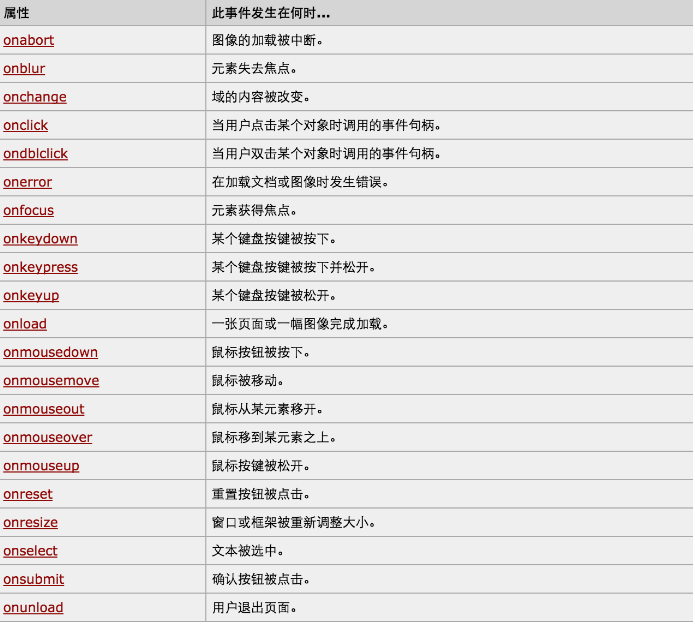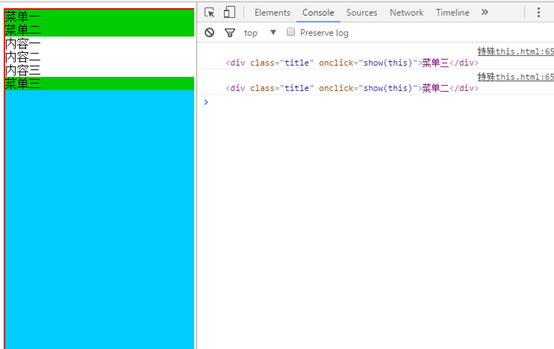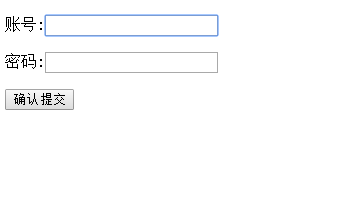dom事件
一、属性

2、this
this特殊的。表示谁点击当前的标签,那么this就代表点击的标签。即谁点击,就代表谁
<!DOCTYPE html> <html lang="en"> <head> <meta charset="UTF-8"> <title></title> </head> <body> <div onclick="func(123,'123');">ads</div> <div onclick="func1(this);">111</div> <div onclick="func2(this);">222</div> <script> function func(arg){ console.log(arg); } function func1(arg){ console.log(arg); } function func2(arg){ console.log(arg); } </script> </body> </html>
下面就是分别点击下面显示的内容

例子:折叠菜单
margin和padding是在html中的盒模型的基础上出现的,margin是盒子的外边距,即盒子与盒子之间的距离,而pdding是内边距,是盒子的边与盒子内部元素的距离
<!DOCTYPE html> <html lang="en"> <head> <meta charset="UTF-8"> <title></title> <style> ul{ padding: 0; margin: 0; } .menu{ background-color: #00CCFF; border:solid 2px red; height: 700px; width: 300px; } .menu .title{ background-color: #00CC00; cursor:pointer ; } .menu .content{ background-color: white; } .hide{ display:none; } </style> </head> <body> <div class="menu"> <div class="item"> <div class="title" onclick="show(this)">菜单一</div> <div class="content hide"> <ul> <li>内容一</li> <li>内容二</li> <li>内容三</li> </ul> </div> </div> <div class="item"> <div class="title" onclick="show(this)">菜单二</div> <div class="content hide"> <ul> <li>内容一</li> <li>内容二</li> <li>内容三</li> </ul> </div> </div> <div class="item"> <div class="title" onclick="show(this)">菜单三</div> <div class="content hide"> <ul> <li>内容一</li> <li>内容二</li> <li>内容三</li> </ul> </div> </div> </div> <script> function show(arg){ //arg当前菜单,思路点击当前菜单的时候就把下面的标签中的hide去掉 console.log(arg); arg.nextElementSibling.classList.remove("hide"); //father=item var father=arg.parentElement; //由于item数量不确定,所以要从menu的子标签开始 var sons=father.parentElement.children; for(var i=0;i<sons.length;i++){ var current_ele=sons[i]; //这里判断的意思,如果遍历出current_ele是arg的father也就是当前点击的标签,由于需要展开内容,所以不能添加hide //添加hide就无法展示,如果不是当前点击的标签,由于需要他们把内容隐藏,所以需要添加hide if(current_ele == father){ }else{ current_ele.children[1].classList.add("hide"); } } } </script> </body> </html>

点击菜单二,就会隐藏菜单一和菜单三的内容
三、事件
对于事件:下面4种
1、 注册事件的方式 a) 在标签中注册<div onxxx””></div> b) 直接注册 document,......onxxx=function(){} 2、 this,触发当前事件的标签 3、 event,触发当前标签的事件内容,keyCode(获取键盘上面按键对应的数字),key(按下的键)
<!DOCTYPE html> <html lang="en"> <head> <meta charset="UTF-8"> <title></title> </head> <body> <div onmouseover="func(this)"onmouseout="Out(this)">123</div> <input type="text" onkeydown="Down(event)"/> <script> function func(arg){ arg.style.background="palegreen"; } function Out(arg){ arg.style.background="white"; } function Down(ths){ console.log(ths.keyCode,ths.key); } </script> </body> </html>
实现效果图

4、 默认事件和自定义事件:
自定义事件的默认优先级 > 默认事件优先级 如果想要阻止后面的事件发生: onclick=”return func();” function func(){ return false; } 如果想让后面的事件执行,那么就把返回值为true或者

<!DOCTYPE html> <html lang="en"> <head> <meta charset="UTF-8"> <title></title> </head> <body> <a href="http://www.cnblogs.com/pyrene" onclick=" return tt()">博客</a> <script> function tt(){ alert(123); return false; } </script> </body> </html>
这个可以应用于验证信息,例如验证表格中是否有内容输入:

<!DOCTYPE html> <html lang="en"> <head> <meta charset="UTF-8"> <title></title> </head> <body> <form action="滚动菜单.html"> <div id="form1"> <p>账号:<input type="text"/></p> <p>密码:<input type="password"/></p> </div> <input type="submit" value="确认提交"onclick="return SubmitForm()"/> </form> <script> function SubmitForm(){ var inputs=document.getElementById("form1").getElementsByTagName("input"); for(var i=0;i<inputs.length;i++){ var current_input=inputs[i]; var val=current_input.value; if(val.trim().length==0){ return false; } } } </script> </body> </html>
实现效果图:当里面不输入内容的时候,无法提交上去





 浙公网安备 33010602011771号
浙公网安备 33010602011771号